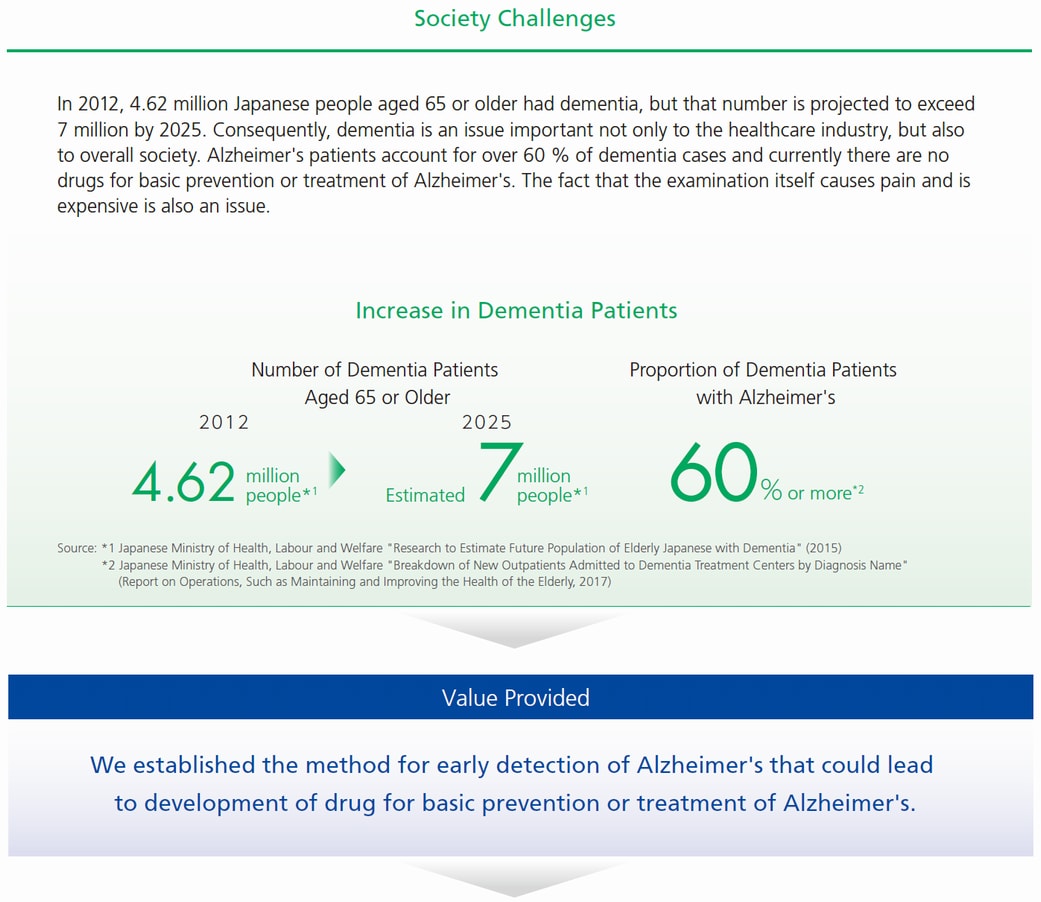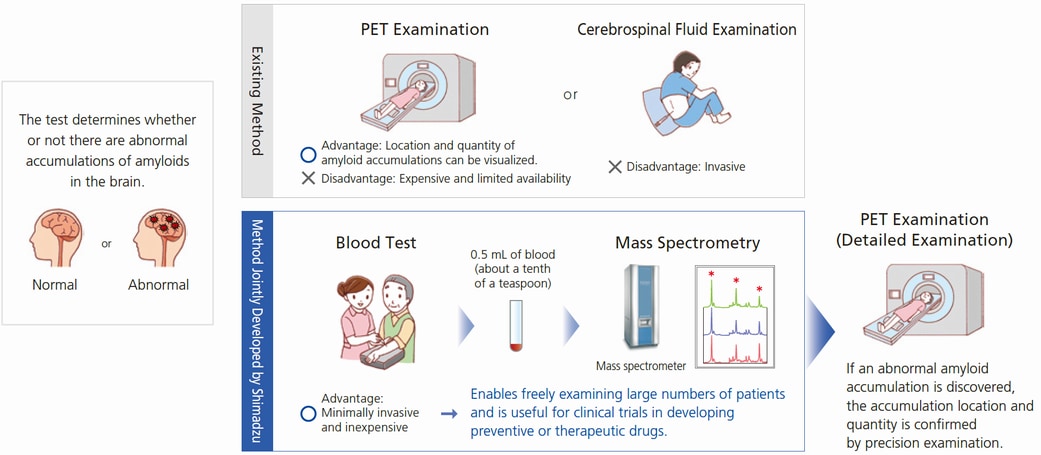
Society Challenges
In 2012, 4.62 million Japanese people aged 65 or older had dementia, but that number is projected to exceed 7 million by 2025. Consequently, dementia is an issue important not only to the healthcare industry, but also to overall society. Alzheimer's patients account for over 60 % of dementia cases and currently there are no drugs for basic prevention or treatment of Alzheimer's. The fact that the examination itself causes pain and is expensive is also an issue.

Contribution to SDGs
We established the method for early detection of Alzheimer's that could lead to development of drug for basic prevention or treatment of Alzheimer's.

Measures by Shimadzu Corporation
Establishment of Accurate Method for Detecting Alzheimer's (Amyloid Accumulation)
Shimadzu is engaged in the field of advanced healthcare, which involves creating revolutionary new products and services for a wide range of fields, including prevention, diagnosis, treatment, and prognosis management, by integrating technologies from both the Analytical & Measuring Instruments and Medical Systems segments. As part of that process, we are conducting research related to dementia. Together with the National Center for Geriatrics and Gerontology, we established an accurate method for detecting Alzheimer's (accumulations of amyloids*). On February 1, 2018, the method was published in the online version of the science journal Nature. So far, we have cooperated with the Australian Imaging Biomarkers and Lifestyle Study of Ageing (AIBL), a world-leading Alzheimer's cohort study organization, to jointly research blood biomarkers for Alzheimer's disease with Kyoto University, University of Tokyo, Tokyo Metropolitan Geriatric Hospital, and Kindai University. Participating in the joint research from Shimadzu is Senior Fellow Koichi Tanaka, who received the Nobel Prize in Chemistry in 2002 for the matrix-assisted laser desorption/ionization (MALDI) method. That MALDI technology led to achieving the Alzheimer's (amyloid accumulation) detection method.
- * A type of protein with a specific structure
Promoting the Development of Basic Prevention or Therapeutic Drugs for Alzheimer's
Accumulations of amyloids within the brain are thought to increase the risk of Alzheimer's disease and start occurring 20 or more years prior to disease onset. The conventional examination method for Alzheimer's involving cerebrospinal fluid and PET scans causes pain and is expensive, which is not practical for clinical trials that require examining several thousand participants. However, our Alzheimer's (amyloid accumulation) detection method is able to accurately detect Alzheimer's from only 0.5 mL of blood, which means our research results have the potential of leading to development of basic prevention and therapeutic drugs for Alzheimer's. Therefore, we plan to deploy a contract analysis business for conducting screening examinations that identify people with abnormal amyloid accumulations. We plan to target mild cognitive impairment (MCI) patients and healthy elderly being tested by pharmaceutical companies or research institutions involved in developing drugs for preventing or treating Alzheimer's. We also invested, together with Taiyo Life Insurance Company from the T&D Life Group, in MCBI Inc., a biotech startup engaged in early-stage MCI testing. We are engaged in developing a more accurate early-stage testing method using a mass spectrometer and developing a method for using a near-infrared imaging system (NIRS) to measure improvement in cognitive function after promoting exercise or communication, for example.
Method for Detecting Alzheimer's (Amyloid Accumulation)



